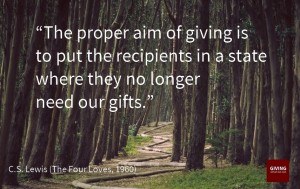My Reaction to the 2014 Staff Conference
 Did you attend the latest ubf staff conference? What is your reaction to this conference? How do you feel about it? Here is my reaction to the Sunday lecture by Daniel Lee.
Did you attend the latest ubf staff conference? What is your reaction to this conference? How do you feel about it? Here is my reaction to the Sunday lecture by Daniel Lee.
Six Stages of Training
 Ben’s excellent article, “Good Teachers Make Themselves Unneeded“, which was inspired by a friend’s C.S. Lewis quotes, inspired me to expound on a topic I wrote about in my second book. That topic is the ubf discipleship training cycle. In stark contrast to C.S. Lewis’ thoughts, the ubf model of teaching is a system designed to make people co-dependent on one another. The ubf sheep is trained to depend on the ubf shepherd for spiritual direction and life decision guidance. And the ubf shepherd then becomes dependent on the ubf sheep for affirmation of their spiritual value before God. Can you imagine the condition of a sheepless shepherd at ubf? In short, the ubf model of training is to make the teachers needed.
Ben’s excellent article, “Good Teachers Make Themselves Unneeded“, which was inspired by a friend’s C.S. Lewis quotes, inspired me to expound on a topic I wrote about in my second book. That topic is the ubf discipleship training cycle. In stark contrast to C.S. Lewis’ thoughts, the ubf model of teaching is a system designed to make people co-dependent on one another. The ubf sheep is trained to depend on the ubf shepherd for spiritual direction and life decision guidance. And the ubf shepherd then becomes dependent on the ubf sheep for affirmation of their spiritual value before God. Can you imagine the condition of a sheepless shepherd at ubf? In short, the ubf model of training is to make the teachers needed.
Good Teachers Make Themselves Unneeded
 How to be a good Bible teacher. A friend shared on Facebook an extremely insightful and useful quote by C.S. Lewis from The Four Loves. I think that if all teachers and leaders understand and apply this quote, they will become the best teachers. This would certainly be true of Bible teachers, pastors and leaders in the church. Read this quote slowly and carefully: Continue reading →
How to be a good Bible teacher. A friend shared on Facebook an extremely insightful and useful quote by C.S. Lewis from The Four Loves. I think that if all teachers and leaders understand and apply this quote, they will become the best teachers. This would certainly be true of Bible teachers, pastors and leaders in the church. Read this quote slowly and carefully: Continue reading →
What To Do and Believe Daily
 Yesterday, a graduate student who met me for Bible study for the first time asked, “What do you do when you feel disconnected with God? Distant from God? When you are not motivated to read the Bible? When you are overwhelmed by life’s uncertainties and the daily pressures of life?” This is an abridged paraphrase of my spontaneous response to her as a Christian. (If she were not a professing Christian, I would likely respond differently.) I basically encouraged her to:
Yesterday, a graduate student who met me for Bible study for the first time asked, “What do you do when you feel disconnected with God? Distant from God? When you are not motivated to read the Bible? When you are overwhelmed by life’s uncertainties and the daily pressures of life?” This is an abridged paraphrase of my spontaneous response to her as a Christian. (If she were not a professing Christian, I would likely respond differently.) I basically encouraged her to:
- Trust God, not yourself (Prov 3:5).
- Love God and others (Mt 22:37-39; Mk 12:30-31).
- Believe that God is good (Rom 8:28).
Book Review: Fundamorphosis
 How could he know? That question surfaced in my mind over and over again as I read Robb Ryerse’s new book, Fundamorphosis. How could someone I never met, who lives many miles away, who has an entirely different background than me, who is a Brown’s fan for crying out loud– how could such a person experience nearly the same kind of transformation that I have been going through? The answer is straightforward: God is transforming cocooned Christians in our generation.
How could he know? That question surfaced in my mind over and over again as I read Robb Ryerse’s new book, Fundamorphosis. How could someone I never met, who lives many miles away, who has an entirely different background than me, who is a Brown’s fan for crying out loud– how could such a person experience nearly the same kind of transformation that I have been going through? The answer is straightforward: God is transforming cocooned Christians in our generation.
B is for Beauty
 Please critique what I wrote for my sermon tomorrow: B is for Beauty.
Please critique what I wrote for my sermon tomorrow: B is for Beauty.
Thanks for the helpful comments last week on A is for Accountability. As a result I stressed how important it is regarding who we choose to be accountable to. This resonated with some as they lamented that what they had shared in confidence was used against them. Regarding accountability I asked three questions during the sermon:
- Do you have a Nathan? (Who are you accountable to?)
- Are you a Nathan? (Who are you accountable for?)
- Do you know your ultimate Nathan, who did not confront you for your sins, but died for your sins?
My short (and incomplete) answers are my wife, my friends and my Jesus.
Critique my Sermon on Accountability
 Do freely give me feedback on my sermon which I will preach extemporaneously tomorrow: A is for Accountability. The four parts of the sermon are:
Do freely give me feedback on my sermon which I will preach extemporaneously tomorrow: A is for Accountability. The four parts of the sermon are:
- Why it’s important: sin deceives and traps all of us without exception.
- How to do it: humbly and gently with the Spirit’s help.
- What not to do: being conceited and thinking we are better than others.
- Who did it best: Only Jesus was perfectly accountable.
Why I Am Not a Christian
 As the Lent season approaches this week, one question has surfaced in my mind: What does it mean to be a Christian? This is one of the thoughts I plan on considering more deeply during this year’s Lent. I will be removing the distraction of blogging during this time, so you will not see me posting here on ubfriends.
As the Lent season approaches this week, one question has surfaced in my mind: What does it mean to be a Christian? This is one of the thoughts I plan on considering more deeply during this year’s Lent. I will be removing the distraction of blogging during this time, so you will not see me posting here on ubfriends.
Continue reading →
Are You Mentally Strong?
 I love lists. I love this list of Mentally Strong People: 13 Things They Avoid. It reminds me of The Seven Habits of Highly Effective People–one of my favorite books. Mandela, Jeff Bezos and Rick Warren are likely mentally strong people (MSP). See if you belong to the category of MSP by avoiding things on this list.
I love lists. I love this list of Mentally Strong People: 13 Things They Avoid. It reminds me of The Seven Habits of Highly Effective People–one of my favorite books. Mandela, Jeff Bezos and Rick Warren are likely mentally strong people (MSP). See if you belong to the category of MSP by avoiding things on this list.
1. Waste Time Feeling Sorry for Yourself. MSP do not feel sorry for their situation or dwell on how they were mistreated. They take responsibility for their actions and their outcomes. They understand that life is often unfair. They emerge from bad circumstances with self-awareness (Gen 50:20) and gratitude for lessons learned. They may say, “Oh, well…” or “Next.” Continue reading →
Junk Food from the Pulpit
 In 1960, approximately 14% of adults in the United States could be classified as obese. By 2008, the prevalence of obesity had risen to one-third. Public-health researchers have estimated that, if the current trends continue, more than half of the American population will be obese in 2030.
In 1960, approximately 14% of adults in the United States could be classified as obese. By 2008, the prevalence of obesity had risen to one-third. Public-health researchers have estimated that, if the current trends continue, more than half of the American population will be obese in 2030.
Why have our waistlines been expanding so dramatically? Experts agree that there is no single reason; drivers of the obesity epidemic are multifactorial and complex. But one of the crucial factors is our increased consumption of foods that are energy-dense and nutrient-poor. Energy-dense, nutrient-poor is the technical descriptor for what we commonly call junk food: fare that delivers large amounts of calories (mainly from carbohydrates and fats) but little protein, fiber, vitamins and other nourishing substances that our bodies need to stay healthy. Examples of these foods include pizza, french fries, and the classic American donut.
We crave these foods because they taste good. They bring instant gratification to our mouths and stomachs. But over the long term, an energy-dense, nutrient-poor diet leaves us paunchy, sluggish and malnourished. If we want to live long, prosperous and healthy lives, we would do well to limit our consumption of these things in favor of fresh fruits and vegetables, lean meats and whole grains.

Last 30 Comments